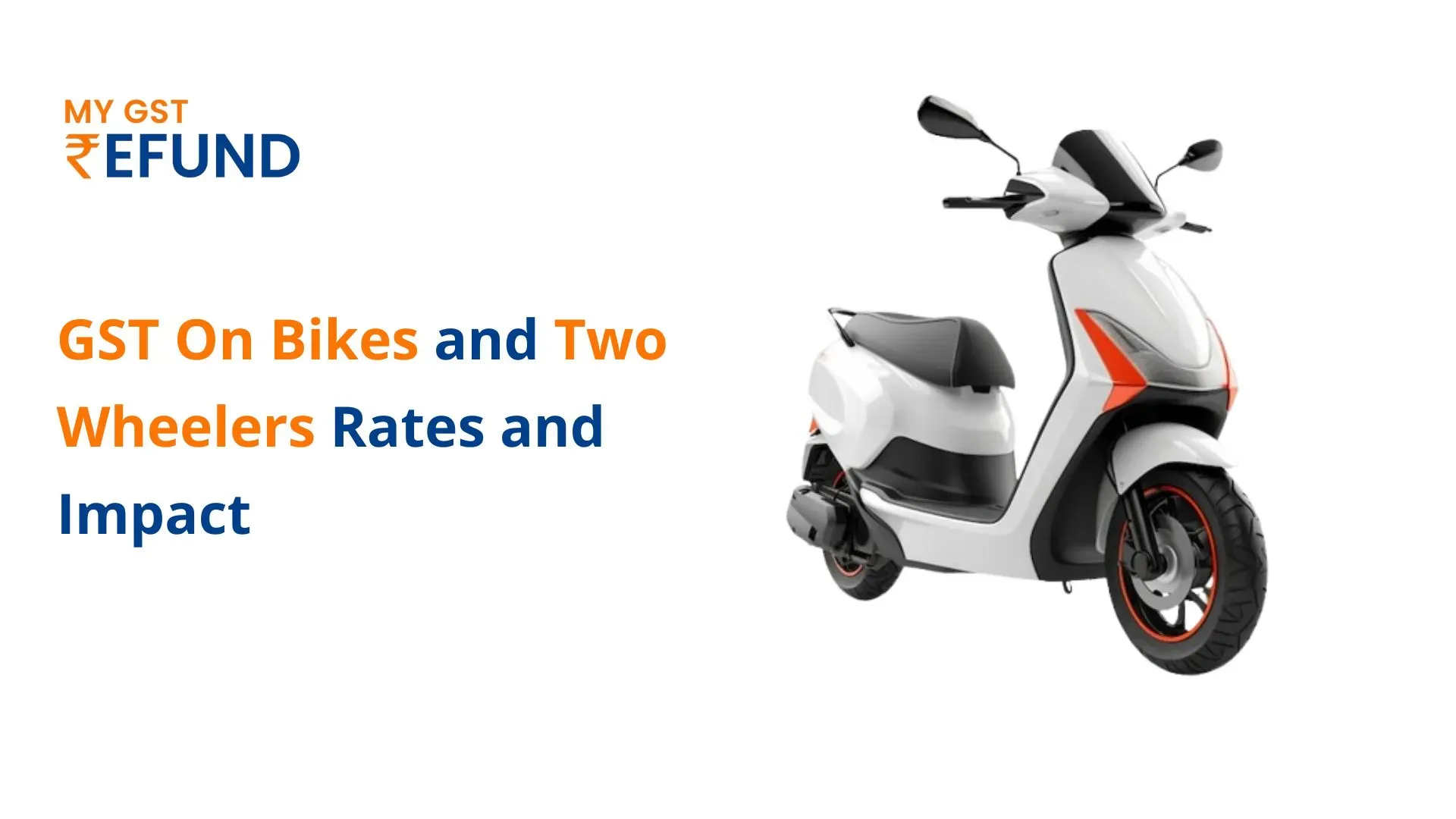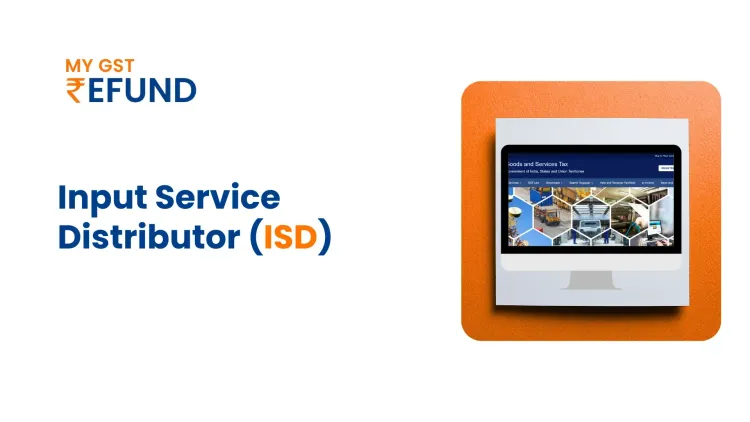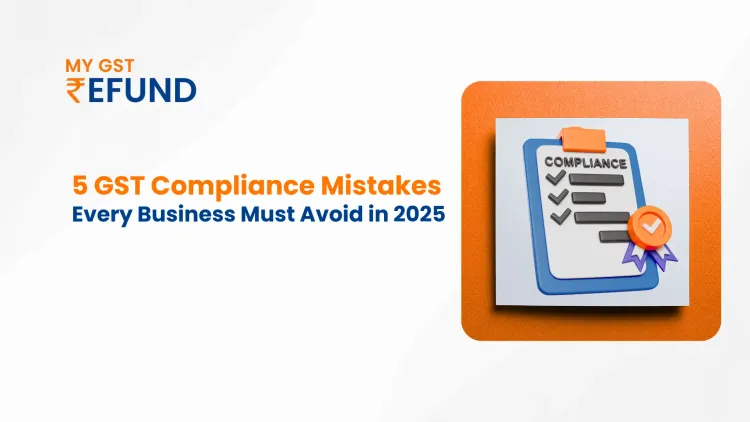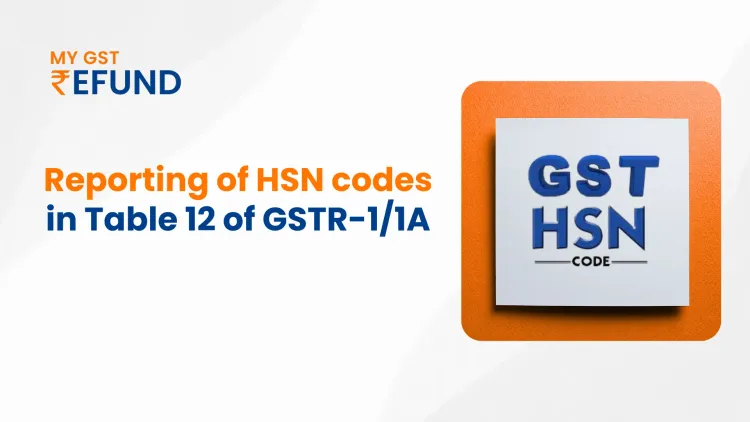Understanding GST on Bikes and Two-Wheelers: Rates, Impact, and FAQs
Published on: Mon Dec 02 2024
GST on Bikes and Two-Wheelers: Rates, Impact, and FAQs
Since 2017, the Goods and Services Tax (GST) has shaped a radically new form of taxation in the country. One good thing about tax is it influences the affordability of these two-wheel vehicles significantly when it comes to purchasing them by the average consumer. As types for different bikes, engine capacity, and even the electric models fall under taxes, so understanding these differences will help buyers make better decisions on their purchases. If you want to know the GST rate for electric bikes or what cuts for conventional motorcycles, this guide covers everything.
Although there are tools such as the GSTIN Status validator and Refund Calculator to aid your financial journey, most people would love to find their way around easily juggling tax matters with compliance.
GST on Bike and Two-Wheelers
Vehicles falling under the category of two-wheelers, which comprises scooters, motorcycles, and electric bikes, have different rates of tax according to their specifications under GST.
For conventional two-wheeler motorcycles or scooters with an internal combustion engine, the GST on motorcycles generally lies in a range between 18% and 28%. The GST rate on two-wheelers whose engine displacements are less than 150cc is set at 18%, while any vehicle whose engine displacement exceeds that of 150cc incurs a tax of 28%. Electric bikes boast of having a paltry 5% GST, which is aimed at encouraging green means of transport.
This has simplified taxation by amalgamating earlier systems of VAT and excise duties into one, making it clearer and easier for manufacturers and consumers alike. Therefore, defining the category of your vehicle will assist you with financial planning.
GST Rates on Different Types of Bikes
The GST on a motor vehicle like two-wheelers is divided into a few categories. They are;
Standard bikes and scooters: These are the lower than 150cc two-wheelers that attract an 18% GST, thus making them very affordable to commuters.
Premium and Sports Bikes: Such two-wheelers have above 150cc engine capacities and thus are subjected to a 28% GST, on the account of their luxurious nature.
Electric Bikes: This has even the most favorable GST rate of 5% because the government is making much effort to promote green transport.
Also Read: GST Refund Process, Claim and Time Limit
Further, the effective tax difference between buying a new vehicle and insuring it is negligible. Besides, understanding the assessment of GST on bike insurance gives buyers a clear picture of their budgets for the maintenance of their vehicles.
Impact of GST on Bike Prices
GST is a blessing in disguise for the taxation table; however, prices have already been jangled due to changes in it. For entry-level, the GST rate on two-wheelers at 18% applicable to two-wheelers has kept costs stable. However, premium bikes have been slapped with the 28% GST, which makes it an on-road version. Therefore, motorcycles have become a luxury choice for many.
Well, electric bikes possess a 5% concession in GST for these bikes to be even more appealing while being green, keeping in mind increased fuel prices. Although this tax structure enables greens to find favor with the high price tags on traditional motorcycles.
GST on Electric Bikes and Scooters
Electricity-powered vehicles including scooters and bikes have a significantly lesser GST rate for electric bikes at just 5%. This low rate is a reflection of how much the government is trying to drive the people towards such eco-friendly and sustainable transportation systems. For a customer, it would mean huge savings when contrasted to other vehicles that use the internal combustion engine (ICE). Such vehicles have GST rates between 18% and 28%.
Electric scooters and bikes have always been the most favorable option for an urban commuter with very low costs in running them and being highly environment-friendly. To top it all, certain states provide more subsidies on these. But the GST on the bike insurance is something that will be a factor in expense since it will be charged as an individual cost subject to an 18% tax slab.
This is the type of GST policy a country should have to favor any electric vehicles; as it perfectly syncs with the rather ambitious goals that India has set for itself in terms of reducing carbon emissions and dependence on fossil fuels. Apart from this, electric two-wheelers are an attractive proposition for aspiring consumers in the future who want to contribute to a greener tomorrow and save money.
Also Read
GST on Electric Vehicles
GST on flight tickets
Availability of ITC Claim on Bike Purchases
Traditionally, the basis of qualifying for Input Tax Credit (ITC) is its availability on the motorcycles according to its purpose for being used. As for two-wheelers, if the same is intended for commercial purposes, anyone can get business ITCs or ITCs under special conditions. Take an example of such a condition in which a motorcycle is registered in the name of a company and used exclusively for purposes of doing business.
But ITC shall otherwise not be taken into account for other personal vehicles as they are non-business assets. For vehicles that are used for mixed purposes, businesses should have proper documentation verifying their claim. More so, any expense incurred for GST on bike insurance and the maintenance and repair of that bike may be claimed under ITC as long as that is for business use.
Documentation and compliance are vital in claiming ITC. Use of these tools, GSTIN Status Validator, confirms the authenticity of vendor GST details as regards your ITC claim and makes the process simple.
GST and Its Effect on Bike Dealers and Consumers
GST has made taxation easy for bike dealers and replaced all indirect taxes with a single tax. On the contrary, the 28% GST on motorcycles with larger engine capacities has made the premium models even more difficult for consumers to get their hands on, while it can be considered as an area where there is growth potential due to the reduced GST of 5% on electric bikes.
For dealers, it is required to maintain input credits, file in the stipulated time, and price competitively. For customers: price transparency with higher costs on mid and high-end models. Insurance premium on bikes with GST also squeezes the affordability of two-wheelers.
To sum up, GST has had a mixed impact on the two-wheeler industry. It has simplified things for dealers and customers; however, the rates and conditions at which they operate continue to affect buying decisions, with electric bikes being a clear winner in affordability and appeal.
Conclusion
Understanding the ins and outs of this kind of GST on bike purchases may be essential for both dealers and customers. The variance in GST rates from 5% up to 28% for electric bikes and premium motorcycles, respectively, affects their affordability and consumer choice.
Refund calculators are tools that will assist buyers in maximizing and minimizing tax burdens on them, given that India is making continuous efforts to promote green transport. The GST regime is trying to do everything possible to make these very attractive but, at the same time, challenging for the conventional two-wheeler market.
Frequently Asked Questions
How much is the GST on a bike?
The GST applicable on bike purchases depends on the engine capacity. Bikes with engines less than 150cc fall under GST of 18%, whereas for engines above 150cc, the GST is 28%. Surprisingly for electric bikes, it has a lower rate of 5%.
Does GST apply to electric bikes?
Yes, the new GST also applies to electric bikes. The GST price is at 5% for electric bikes, which is far less than the conventional rates of 2-wheelers, making it an affordable as well as environment-friendly option.
What is the GST on bike accessories and spare parts?
Accessories and spare parts for bikes like helmets, seat covers, and even engine parts, purchased along with the vehicle or separately from it, would be liable under the GST regime of 18%.
Can we claim GST on a two-wheeler?
GST on two-wheelers can be claimed as an input tax credit if the vehicle is used wholly for business purposes and registered in the company name. Personal or mixed-use vehicles generally are ineligible for ITC.
Does GST apply to electric bikes?
Yes, electric bikes are covered under the GST law. The GST rate on electric bikes is just 5%, reflected in government policy encouraging the use of greener travel alternatives.
Related Posts





